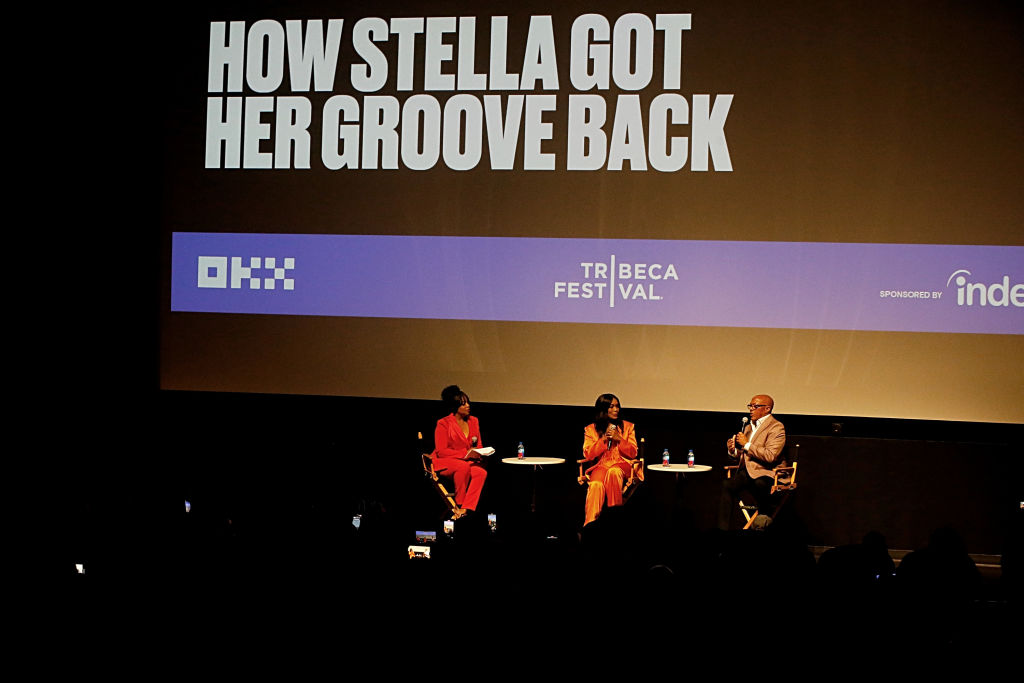Angela Bassett is a prominent figure in Hollywood who has made a name for herself through her talent, strength, and longevity in an industry known for its fleeting moments of fame. As a distinguished African-American actress, Bassett’s rise has had a significant impact on the entertainment industry and the representation of Black talent. Her breakthrough role in 1993 as Tina Turner in What’s Love Got to Do With It earned her a Golden Globe nomination and was instrumental in breaking away from the tropes that plagued Black actresses in Hollywood. It demonstrated that they could carry films of prestige.
In 1998, Bassett brought the lead character of Stella Payne to life in the film adaptation of Terry McMillan’s novel How Stella Got Her Groove Back. The film touched on themes of self-discovery, love, and the societal pressures women face regarding age and relationships. Through her character, Bassett created a lasting impression of a woman reclaiming her life. Stella resonated with audiences globally, delivering multifaceted performances that challenged societal norms.
Recently, at the Tribeca Festival Storytellers session, Bassett and the director of How Stella Got Her Groove Back, Kevin Sullivan, sat down for a conversation about the actress’ long career and the impact of the film on Black Women. They discussed how they connected to the character’s choice of freedom and the power in her defiance of expectations.
Bassett spoke about her admiration for Terry McMillan’s voice, honesty, and insight, saying, “Terry McMillan ushered in this moment, through her books about Black women full of assuredness and exists regardless of what society says. It’s exciting to be a part of her legacy.”
Sullivan discussed the process of casting Winston Shakespeare, Stella’s love interest. He saw actors from everywhere and eventually found Taye Diggs, a musical theater kid from Rent Broadway. They had him sing a song to Angela at the beginning and end of every rehearsal for five days.
The scenic Jamaican backdrop played an important role in the film, and Sullivan elaborated on the challenges they overcame to shoot there. The infrastructure of Jamaica was challenging, but they had great people, and they all just dug in and got in and came out on time and under budget.
Bassett also reflected on working with Whoopi Goldberg, one of the most popular Black actresses at the time. The camaraderie spilled over in scenes shared with Goldberg. They had a beautiful camaraderie and sisterhood that developed in the making of the movie.
Goldberg’s kindness also shone through when the production hit roadblocks. Bassett recounted, “We were receiving per diem, and it wasn’t matching the needs of the crew, and Whoopi would say, ‘Give the people what they need,’ and mentioned that if they can’t get what they need, she would subsidize it for them. They ended up doing the right thing, but she was ready to step up. That’s a testament to her character as a person. It was a blessing to have her.”
Bassett addressed the issue of vulnerability in characters and her approach to her performances. She stated, “Whenever I take on a character, I am for as much totality of them, who they represent, and they are about struggles they’re going through so that the performance doesn’t come off as one-dimensional. We as Black women have been seen through the eyes of tropes. Being a hard-trained actress, I am always looking for the humanity in these female characters to make them rich and multi-dimensional.”
In terms of her legacy, Bassett expressed her gratitude and hope to create projects that get people to tap into their feelings. She said, “That’s the job as far as I’m concerned. I hope that in the future, people will think of me as someone who gave them the audience because that’s the priority for me.”
Angela Bassett’s impact on Hollywood and Black talent is undeniable. Her performances and influence have broken barriers and challenged norms, paving the way for future generations of Black actors and actresses. How Stella Got Her Groove Back remains a timeless classic that showcases Bassett’s multifaceted talent and continues to inspire audiences globally.

